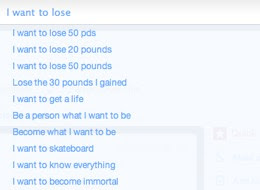
A number of cities in the US have their own datastores, such as DataSF for San Francisco and the Chicago data store. The idea has rapidly gained traction since the introduction of Google Maps in 2005, which allowed people to attach sets of data with geographical information to a map in real time.
In London, the datasets that will be available include attainment, pupil number and schools data; fire incidents, ambulance rates, crime rates; carbon emissions, floorspace, vacant commercial offices, industrial stock data, abandoned vehicles, recycling rates, waste data, waste re-use centres, fly tipping rates, alcohol indicators, abortion rates, hospital waiting lists and admissions, excess winter deaths - and many dozens more.
The London Datastore, as it is called, will be fully open from 29 January. It will be the first such "datastore" for a city in the UK. The government is working on a similar site, called data.gov.uk, which is also expected to be unveiled this month under the auspices of Tim Berners-Lee, the inventor of the world wide web. He has been working inside the civil service since summer 2009 to unlock and unify datasets collected inside government: when it launches, data.gov.uk is expected to carry hundreds of datasets for free reuse.
In a statement, Johnson, Mayor of London, said: "The superb new London 'Datastore' will unleash valuable facts and figures that been languishing for far too long in the deepest recesses of City Hall. I firmly believe that access to information should not just be the preserve of institutions and a limited elite. Data belongs to the people particularly that held by the public sector and getting hold of it should not involve a complex routine of jumping through a series of ever decreasing hoops.
"The US has led the way on this idea of setting their data free for anyone - students, campaigners, software developers – to use. Now it's time for Britain to get up to speed and I want London, as the greatest city in the UK, to be at the forefront of this revolution, that will not only increase democracy, but also provide a potential money-spinner for the city's hugely important software development sector."
Fund of up to £200,000 will help developers to create innovative use of 200 datasets in new free data initiative
The Mayor of London, Boris Johnson, will on Thursday launch a website hosting hundreds of sets of data - including previously unreleased information - about the capital, as part of a new scheme intended to encourage people to create "mashups" of data to boost the city's transparency and accountability.
Channel 4 will also be offering up to £200,000 through its 4ip fund to help develop the most innovative uses of the data.
To announce the site, Johnson will take part in a live linkup on Thursday to the Consumer Electronics Show in Las Vegas with President Barack Obama's chief technology officer Aneesh Chopra, who has overseen the development of the US government's "data.gov" project, which aims to put all US government data onto the web for others to use.
The government took a significant step towards making such datasets easier to use with the announcement by Gordon Brown in November that Ordnance Survey mapping data from 1:10,000 would be free for all use, including commercial applications, from April.
Johnson has been a strong advocate of open data, having campaigned in 2008 on the promise that he would introduce crime maps, despite misgivings of some senior police officers. The Metropolitan Police did however quickly implement] crime mapping in London, following the lead that had already been set by a number of other police forces around the country.
Source:
theguardian.co.uk










